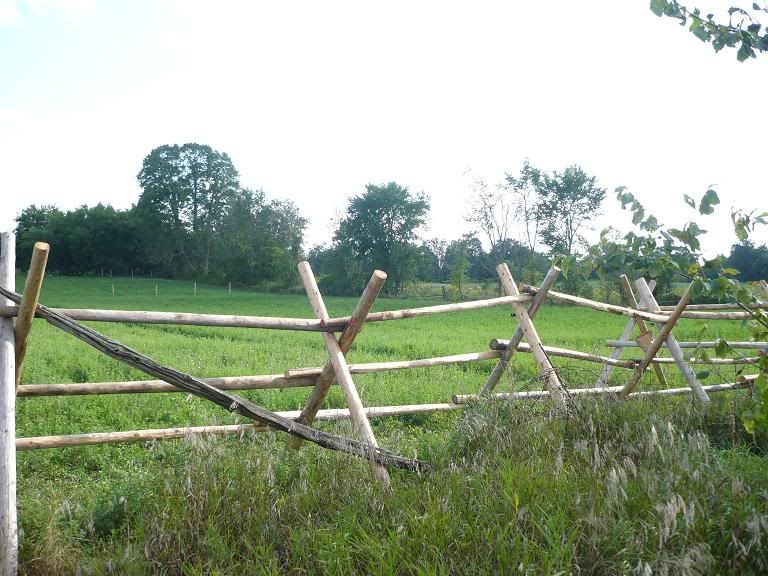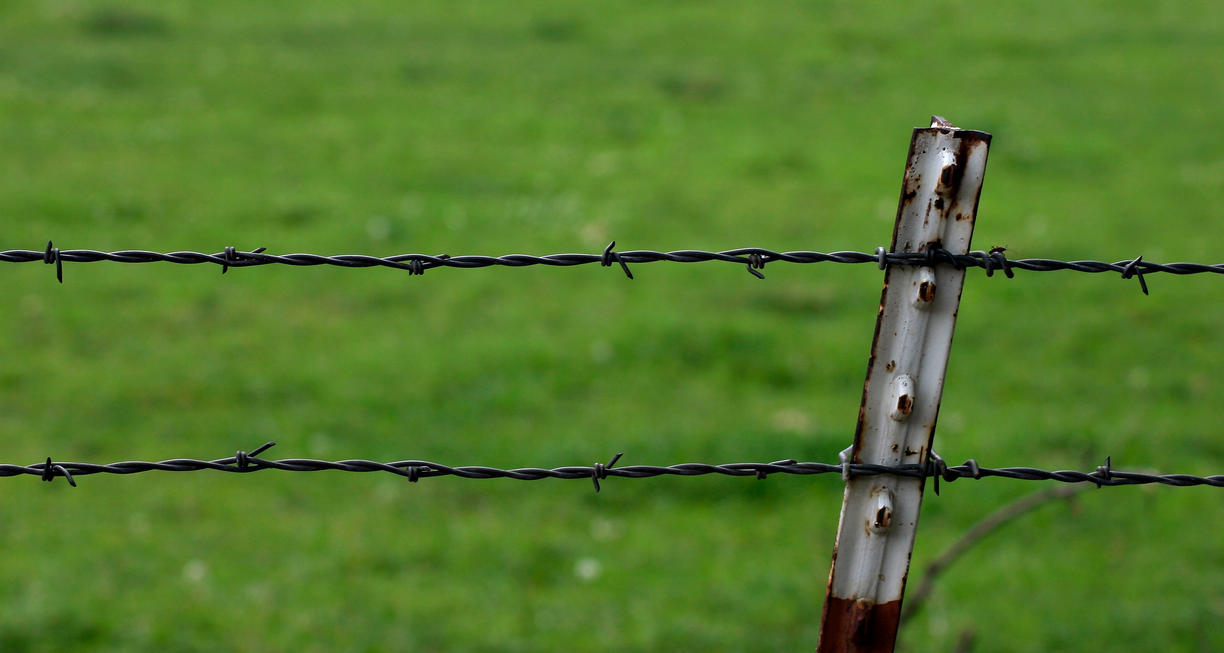Buck (or Split Rail) Fencing
 |
| Buck fencing is ideal for rocky or treacherous terrain, as it simply rests upon the grounds surface and does not require postholes. |
Pros
- Works great over rocky or uneven terrain.
- Rustic-looking.
- Is portable if built lightweight enough.
Cons
- Will require some maintenance as it is only wood.
- Can invite your horse to chew and/or crib.
Steel Pipe and Rod Fencing
 |
| Simple, strong, and manageable. |
- Very strong.
- Safe.
- Works great for pens and runs.
- Very little maintenance required.
Cons
- Posts must be set in concrete.
- Very little flexibility.
- Strict and business-like appearance.
Electric Fencing
 |
| Electric fencing works great in most cases. |
- Safe.
- Teaches horse to respect fencing. (Unless the horse knows how to sneak through it).
- Inexpensive.
- Quick to set up.
Cons
- Insulators and controls require maintenance.
- Some horses may already know (or learn) how to run through electric fences. If you have a horse that does this, electric fencing is not a good choice!
PVC Fencing
 |
| Don't buy PVC fencing unless your horses don't act like horses. |
Pros
- Has a clean, "fancy" look.
- Has decent visibility.
Cons
- Expensive.
- Flimsy.
- Horses won't always respect it (unless very well trained).
- You know what's interesting? Companies that sell PVC fencing for horses suggest setting up electric fencing beside it. They have a point!
Vinyl-Coated Wood Fencing
 |
| Vinyl-coated wood fence; very similar to polyethylene or PVC coated wood fencing. |
Pros
- Very low maintenance.
- Nice looking.
- Good visibility.
- Not as flimsy as other plastic fences.
- Deters chewing.
Cons
- Seems to be very expensive.
Continuous Fencing
 |
| Continuous fencing is overall pretty awesome. |
Pros
- Low maintenance.
- Safe.
- Decently priced.
Cons
- Not very visible.
Smooth Wire Fencing
 |
| Smooth wire fencing is country-looking and safe. |
Pros
- Economical.
- Less likely to cause lacerations than barbed wire.
- Won't sag due to snow build-up.
Cons
- Horses may start leaning against it.
- Requires maintenance.
Barbed Wire Fencing
Pros- Sometimes provides a slight mental barrier.
Cons
- Can seriously rip up an animal's skin, leading to possible infection.
- Barbed wire was designed for cows, not horses. That itself should say something about its safety for horses.
- A lot of maintenance required.
Field Fencing
 |
| Stay as far away from this type of fencing as possible. |
Pros
- ...None?
Cons
- Can be very dangerous to horses- both big and small. Within a year, I learned that our horse had died from this fencing, and I also saw a deer that had to be shot because of this type of fencing. Please, please do not use this. There are many safer options out there.

No comments:
Post a Comment